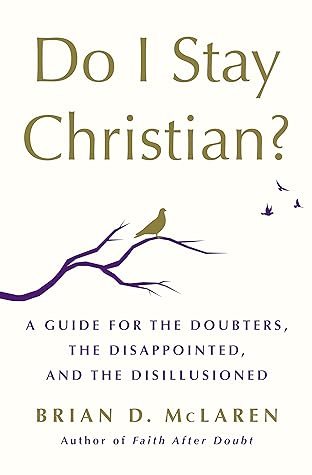More on this book
Community
Kindle Notes & Highlights
Read between
February 24 - February 27, 2024
Surprising numbers of Roman Catholics have told me, almost as if reading from the same script, “I have no hope for the church reforming or renewing. My only hope is that it collapses and dies soon, before it does too much more harm, so something new can be resurrected.”
“Which states have the highest church attendance rates?” They would find the following as the top five: Alabama, Mississippi, Tennessee, Louisiana, and Arkansas.
I heard many a preacher jokingly refer to seminary as cemetery, implying not too subtly that if you learn too much about your faith, it dies.
Confirmation bias names our brain’s tendency to reject anything that doesn’t fit in with our current understanding, paradigm, belief system, or worldview.
Christianity was like McDonald’s, I concluded: the menu was limited and predictable, but its familiarity felt as comforting as a cheeseburger. What it lacked in nourishment it made up for in convenience.
Erna Kim Hackett aptly calls this “Disney Princess theology,” where Christians vigilantly guard our whitewashed history so we are always the good guys, never the bad.3
Mix constricted Christian attitudes toward democratic politics and a shallow political agenda with Christian twisting of history and science, and you have an intoxicating cocktail that renders millions of Christians dangerous actors in a democracy. Having imprisoned themselves inside the great wall of bias, they lose the capacity for critical thinking and become susceptible to the siren songs of conspiracy theories and the seductions of authoritarian leaders. As a result, they put not only themselves but also the rest of us in danger.
Community and confidence bias will reinforce the fantasies preached by their leaders. Complacency bias will prompt them to unplug the smoke alarms rather than put out the fire. Conspiracy bias will divert their attention from real dangers to imaginary ones, and it will keep them fighting one another rather than uniting against their common danger and for the common good. Catastrophe/Normalcy bias will keep them oblivious to the slowly deteriorating conditions until it’s too late.
In the United States, and through U.S. influence in many other places as well, the love affair between Christianity and Theo-Capitalism has grown so strong that Princeton historian Kevin Kruse subtitled his important book One Nation Under God as follows: How Corporate America Invented Christian America.13
religious extremists, whether Christian, Muslim, or of other faiths, notice that they’re losing ground. As a result, they may become desperate enough to launch theocratic revolutions (like the failed one that rocked the United States on January 6, 2021, or the successful one that has controlled Iran since January 1978).


